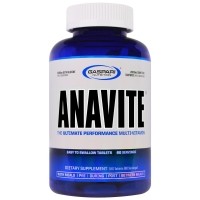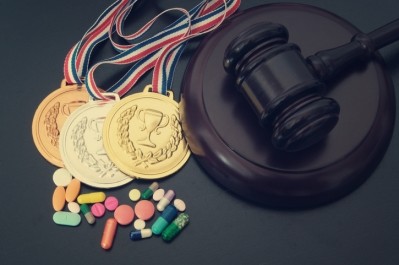UFC fighter loses court case over tainted multivitamin

Background
Good tested positive for illegal anabolic steroid 1-androstenedione in 2016 and was yanked from a fight weeks later. The US Anti-Doping Agency (USADA) also issued a two-year suspension, which was later reduced to six months. The decision to reduce the suspension came after the agency concluded Good’s ingestion was likely due to a contaminated supplement.
The UFC fighter said he turned over all of his supplements to USADA for further testing, which found that Anavite contained 1-andro, which was not listed on the product’s label.
“Athletes are reminded that even seemingly low-risk dietary supplements may contain prohibited substances,” USADA said in a press release at the time, “which may not be listed on the Supplement Facts label, thus USADA encourages athletes through Supplement 411 to challenge the reasons for using supplements and make themselves aware of how to reduce their risks of a positive anti-doping test and/or an adverse health event.”
In 2017, Good sued the supplement companies, Gaspari Nutrition and Hi-Tech Pharmaceuticals. Jared Wheat is principal owner of Hi-Tech Pharmaceuticals and acquired co-ownership of Gaspari Nutrition in 2016. Wheat has often found himself in the crosshairs of federal authorities.
In the court filings, Good claimed the companies were behind the adulterated Anavite. He also sued Vitamin Shoppe for negligence and deceptive acts and practices, among a variety of other claims.
In a statement at the time, a spokesperson for The Vitamin Shoppe said, "It has come to our attention that the multivitamin, Anavite, by Gaspari Nutrition, has been alleged to contain an undisclosed ingredient."
"We take these issues very seriously and as a precautionary measure, we are removing this supplement from our stores and our website while we review this matter. Our customers' safety is our priority and we are committed to providing quality products they can trust."
Findings
This week, Judge Caproni ruled there was no genuine dispute of material fact and the defendants were entitled to judgment as a matter of law because Good did not present supporting evidence.
According to Caproni, Good’s initial disclosures did not include anyone from the Sports Medicine Research and Testing Laboratory (SMRTL) to testify.
“Plaintiff’s trial witnesses are therefore limited to those disclosed in his initial disclosures; he would not be permitted to call anyone from the SMRTL to offer the lab reports into evidence,” she wrote, adding that the purported lab results that detected 1-androstenedione in two Anavite bottles submitted by USADA were inadmissible hearsay.
Caproni wrote that plaintiff’s handling of the SMRTL lab report “is consistent with how he has litigated throughout this case,” citing Good’s failure to preserve his original bottle of Anavite and the lack of a plaintiff’s expert report for failure to comply with court rules “in multiple ways.”
Caproni’s final conclusion was that without the SMRTL reports or expert testimony, the plaintiff lacks any evidence that Anavite contains the illegal substance.
Not playing by the rules
On the surface, the ruling may appear to allow bad players in the supplement industry off the hook. Attorney Kevin Bell, a partner at Arnall Golden Gregory LLP, said, however, “The reason the case was ruled on the other side's favor, that it seems to be more of a procedural error by attorneys getting evidence into the record. You submit lab results for that. He would have needed what they call a 'sponsoring witness' to discuss the testing protocols and how the tests were conducted and the results. You may then have also wanted an expert on top of that to explain why having anabolic steroids in dietary supplements is bad. You may also have wanted someone who has regulatory expertise like a former FDA official to talk about why having anabolic steroids in dietary supplements is not in accordance with the Food, Drug and Cosmetic Act."
Bell, who has worked with Judge Caproni in a number of court cases, said the case was resolved on summary judgment before trial, based almost entirely on the fact that Council didn’t follow procedural rules. “That ultimately doesn't change whether or not the products had anabolic steroids in them at all.”

















